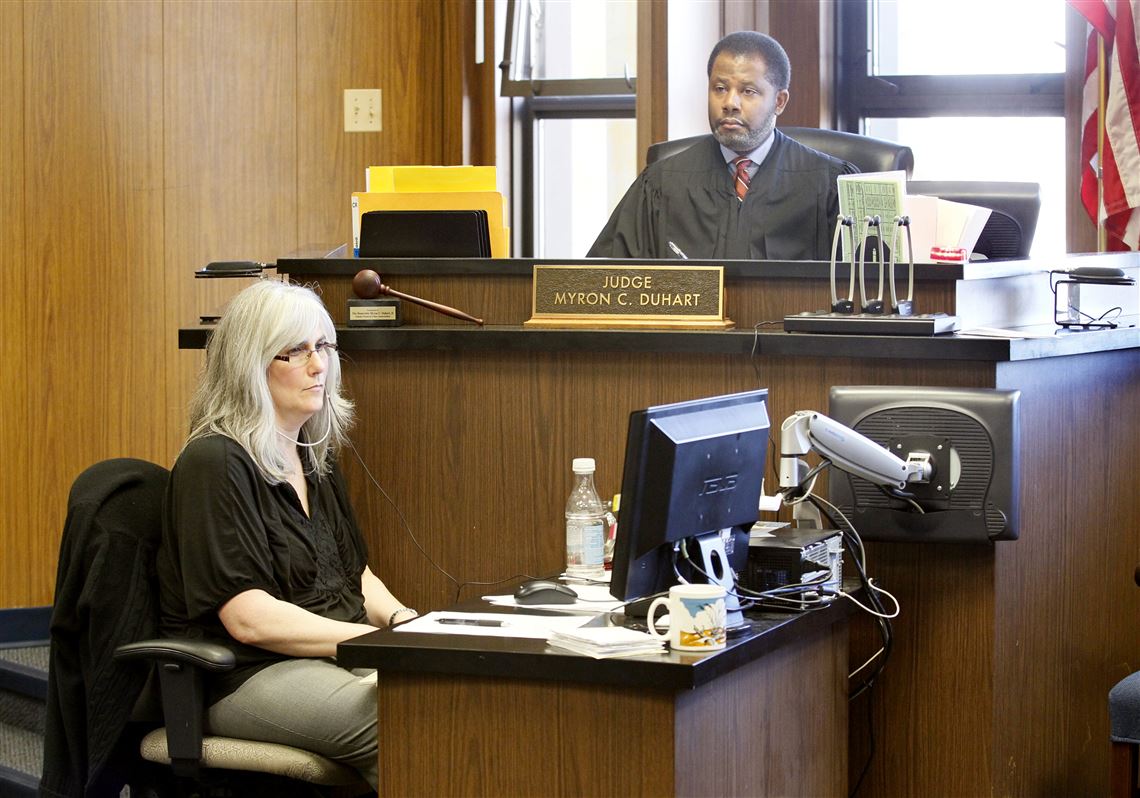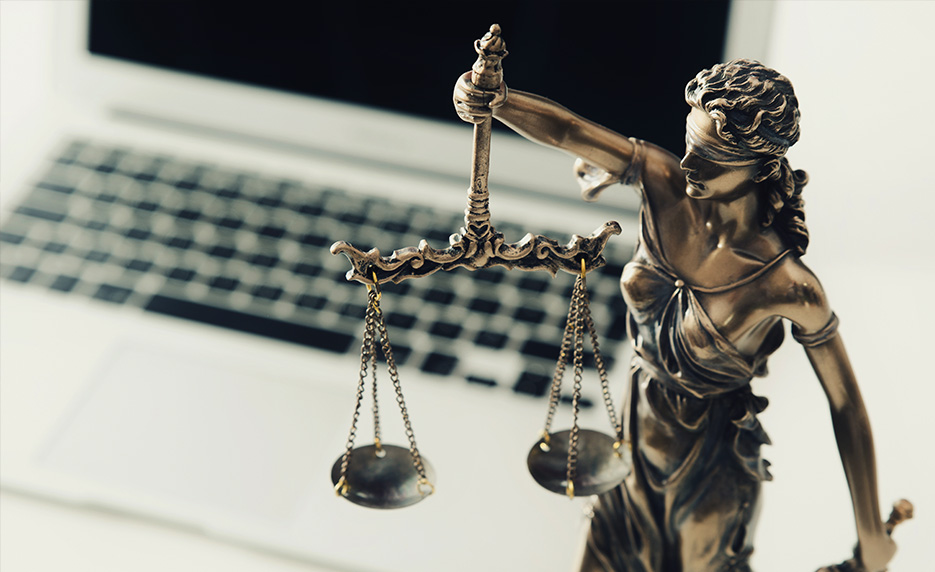Everything About Court Reporting: Vital Insights Into Its Significance in Legislation
Court reporting serves a necessary feature within the legal framework, giving a precise and reputable document of procedures. With advanced methods and devices, stenotype reporter capture the subtleties of testaments and legal dialogue. The relevance of their work expands past mere transcription. As the legal landscape evolves, so too does the role of modern technology in court reporting. Comprehending these characteristics discloses deeper effects for justice and transparency in the legal system.
The Function of Court Reporters in the Legal System

Although typically forgotten, stenotype reporter play a vital role in the lawful system by guaranteeing a precise and verbatim record of process. Their main obligation involves transcribing spoken words during tests, depositions, and various other lawful events, which works as a main record for future reference. This paperwork is very important for allures, as it gives the needed details for examining decisions made by courts and courts.
Stenotype reporter have to possess extraordinary listening skills and a deep understanding of lawful terminology to record the subtleties of testimony and argumentation accurately. Their job contributes to transparency within the judicial process, permitting liability and justness. Furthermore, they assist in accessibility to justice by making records available to entailed celebrations, making certain that every person has the opportunity to review the process. In this means, stenotype reporter copyright the stability of the lawful system, enhancing the significance of accurate interaction in issues of legislation.
Strategies and Tools Utilized in Court Reporting
In court reporting, various techniques and devices boost the precision and efficiency of transcription. Stenography modern technology plays a considerable function, permitting reporters to capture talked words promptly, while digital recording methods provide alternate remedies for documentation. Understanding these tools is vital for realizing how court press reporters accomplish their vital function in the legal system.
Stenography Innovation Review
Stenography technology functions as the cornerstone of contemporary court reporting, enabling reliable and exact transcription of talked dialogue. Utilizing specialized equipments called stenographs, court press reporters can capture speech at remarkable speeds, usually exceeding 200 words per minute. These makers utilize a special keyboard design that enables numerous keys to be pushed at the same time, producing phonetic representations of words - durham court reporting. This approach lessens the demand for considerable punctuation and enhances transcription accuracy. Furthermore, clerks use different shorthand methods and icons to further enhance the procedure, making certain that no information is forgotten during procedures. The integration of stenography technology not only cultivates reliable interaction in legal setups however likewise promotes the honesty of the judicial procedure by providing precise and reliable records of conversations
Digital Recording Methods
An enhancing number of court reporting experts are transforming to electronic recording approaches to improve the precision and efficiency of their transcriptions. These techniques utilize sophisticated audio and video modern technology to record proceedings in real-time. Digital recorders, often combined with top notch microphones, guarantee that every word talked is maintained with clarity. Specialized software can transcribe audio data instantly, allowing for quicker turn-around times. Some specialists integrate double recording systems for redundancy, assuring no crucial info is lost. In enhancement, electronic recordings can be easily indexed and browsed, assisting in swift retrieval of specific sections. As lawful atmospheres develop, accepting these digital tools not just streamlines the reporting process yet also maintains the honesty of the document.
The Importance of Accuracy in Transcription
Precision in transcription is crucial in court reporting, as it guarantees that lawful records show real material of proceedings. This precision can considerably influence situation outcomes, impacting the choices made by juries and courts. Keeping high standards of accuracy is critical in the legal profession.

Accuracy in Legal Records
Although the legal system relies heavily on significant disagreements and influential rhetoric, truth backbone of judicial process exists in the accuracy of lawful records. Exact transcription is essential, as it ensures that every ruling, question, and statement is recorded correctly. Such accuracy serves several objectives, consisting of providing a dependable recommendation for appeal procedures and preserving the stability of the judicial system. Errors in transcription can result in misunderstandings, misconceptions, and possibly destructive repercussions for all parties entailed. Court press reporters should have extraordinary abilities and attention to information, as their work directly influences the clarity of lawful files. Inevitably, the precision of lawful documents click for info underpins the depend on put in the judicial process, enhancing the relevance of meticulous transcription.

Effect On Instance Outcomes
When lawful procedures unravel, the precision of transcription frequently dictates the trajectory of an instance's outcome. Exact court reporting assurances that every word spoken is successfully recorded, allowing juries, lawyers, and courts to make enlightened decisions based on the document. Errors in transcription can result in misconceptions, misconceptions, and potentially unfair decisions. The stability of lawful papers depends greatly on the precision of these records, as they offer as the foundation for charms and additional lawsuits. In high-stakes cases, where the effects are profound, the function of a court reporter becomes even more crucial. Maintaining strenuous standards in transcription not only sustains the lawful process however additionally maintains the concepts of justice and justness in the courtroom.
Court Reporting in Various Legal Setups
Court reporting plays a crucial duty throughout various legal settings, ensuring that procedures are accurately documented for future recommendation. In criminal court, court reporters transcribe statements, evidence, and judicial judgments, which are critical for appeals and instance evaluations. In civil litigation, precise transcripts facilitate the discovery process and supply a dependable document for trial proceedings. Administrative hearings usually depend on court reporters to keep a main document, making sure openness and accountability in governmental processes. Family courts also take advantage of court reporting, as precise paperwork of process can affect wardship choices and negotiations. Additionally, depositions in pre-trial stages call for precise recordings to catch the nuances of witness statements, which may be substantial fit case strategies. Overall, court reporting works as a keystone in the legal system, cultivating fairness and quality across varied judicial atmospheres.
The Effect of Innovation on Court Reporting
As modern technology remains to progress, its impact on court reporting has become increasingly considerable. Technologies such as electronic recording, real-time transcription software, and artificial intelligence have actually transformed standard techniques. Digital audio recorders currently catch court process with amazing quality, enabling stenotype reporter to concentrate on nuances and context rather than exclusively on keying. Real-time transcription modern technologies make it possible for prompt access to records, promoting efficiency and boosting cooperation among lawyers. Furthermore, expert system devices are being integrated to assist in the transcription process, minimizing human mistake and accelerating document generation. Despite these improvements, the crucial abilities of stenotype reporter stay very useful, as they provide a nuanced understanding of lawful language and court characteristics. Ultimately, technology matches rather than changes the knowledge of court press reporters, making sure that the stability and accuracy of legal documents are upheld in a significantly electronic landscape.
Occupation Opportunities and Pathways in Court Reporting
The advancement of modern technology in court reporting has actually opened up a selection of career possibilities for striving professionals in the area. Typically, stenotype reporter were primarily in charge of transcribing lawful procedures. Improvements such as electronic recording and real-time reporting have actually increased their roles.
Today, stenotype reporter can specialize in areas such as captioning for tv programs, giving transcription solutions for legal firms, and functioning in the corporate field for depositions or meetings - durham court reporting. In addition, opportunities in remote reporting, particularly as a result of the increase of virtual court rooms, have become increasingly common
Educational paths consist of official training programs, accreditation training courses, and continuing education and learning to remain upgraded with technical adjustments. Networking within legal and specialist organizations likewise plays a substantial role in job improvement. Overall, the diverse possibilities in court reporting mirror the dynamic nature of the lawful career and the enhancing demand for proficient professionals.
The Future of Court Reporting in an Evolving Legal Landscape
Just how will the function of court reporting adapt as the lawful landscape remains to progress? As technology advances, court reporting is most likely to accept innovative devices such as expert company website system and real-time transcription software program. These innovations may improve precision and efficiency in capturing legal proceedings. In addition, the raising prevalence of remote hearings demands that court press reporters end up being skilled in digital systems, guaranteeing seamless paperwork despite area.
Concurrently, stenotype reporter will need to adapt their skills to handle brand-new kinds of situations, such as those including cyber regulation and intellectual residential property disagreements, which require specialized understanding. In addition, the need for instantaneous access to transcripts will certainly press professionals to deliver quicker turnaround times without jeopardizing top quality. Eventually, the future of court reporting will rest on a balance between traditional skills and technological integration, making sure that the honesty of the legal procedure remains intact in a progressively electronic globe.
Frequently Asked Concerns
Just How Do Court Reporters Take Care Of Sensitive Details Throughout Process?

What Certifications Are Required to Become a Court Reporter?
To end up being a stenotype reporter, people typically need a high college diploma, specialized training from an accredited program, proficiency in shorthand or voice writing, and qualification or licensure, depending upon state needs and policies.
Are Court Reporters Required to Have a Permit?
Stenotype reporter are commonly needed to acquire a license, relying on the jurisdiction. Licensing assurances that they fulfill particular criteria of efficiency and expertise, which is vital for preserving the stability of lawful proceedings.
Just How Do Court Reporters Take Care Of Different Accents and Dialects?
Stenotype reporter take care of different accents and languages via extensive training, technique, and knowledge with numerous speech patterns. They usually make use of specialized software program and techniques to accurately record talked words, making sure quality and precision in their transcripts.
What Is the Typical Wage for a Stenotype Reporter?
The ordinary wage for a stenotype reporter varies by place and experience, normally ranging from $50,000 to $80,000 each year. In high-demand locations, incomes can exceed $100,000, mirroring the occupation's importance read this post here and specialized abilities.
Frequently forgotten, court press reporters play an essential role in the legal system by making certain a verbatim and accurate record of process. In criminal court, court reporters record testimonies, proof, and judicial judgments, which are crucial for charms and instance reviews. Family members courts also benefit from court reporting, as exact documents of procedures can affect guardianship choices and settlements. Commonly, court press reporters were primarily liable for transcribing legal procedures. Today, court reporters can specialize in locations such as captioning for television programs, offering transcription services for lawful firms, and functioning in the corporate field for meetings or depositions.